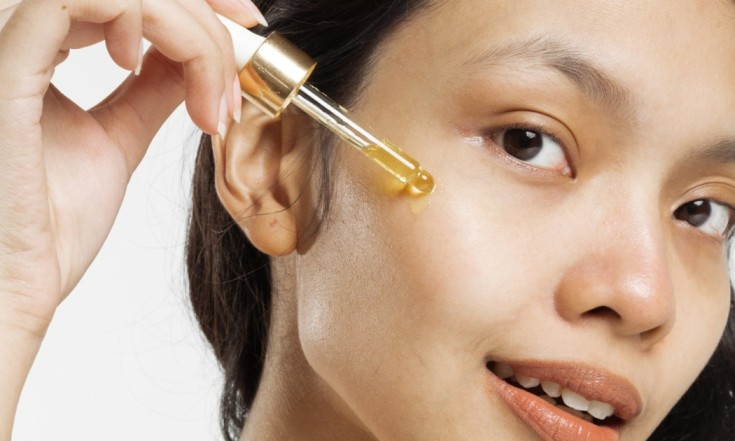Hello and welcome to the world of collagen and acne! If you’re someone who has recently started taking collagen supplements or considering it, you might be wondering, “Can collagen cause acne?” But don’t worry, we’re here to help you navigate the world of collagen and acne, and hopefully, make the right choices for your skin health.
In this article, we’ll dive deeper into the relationship between collagen and acne, and explore the science behind how collagen supplements work. We’ll also discuss the potential risks and side effects of taking collagen supplements, and give you some tips on how to prevent and treat acne breakouts.
What is Collagen?
It’s a protein naturally found in the body and keeps our skin plump, firm, and youthful. No wonder many people are interested in boosting their collagen levels to achieve that coveted “glow-up.” However, only some collagen supplements are created equal, and some may only be suitable for some. That’s where the issue of acne comes in. A lot of collagen is present in our body, almost 30% of the body’s total protein. It is a fibrous protein found in the skin, bones, tendons, ligaments, cartilage, and other connective tissues.
Types of Collagen
There are at least 16 types of collagen in the human body, but the most common types are types I, II, and III. Skin, tendons, bones, and other connective tissues come under Type I. Cartilage comes under Type II. In contrast, skin, blood vessels, and internal organs are part of Type III.
Importance of Collagen in the Body
Collagen is crucial in maintaining the body’s strength, elasticity, and structure of various tissues. It provides support and protection for organs and tissues and helps to maintain the integrity of the skin and joints. Collagen also helps to promote wound healing, bone growth, and muscle repair.
How Collagen Supplements Work
Collagen supplements are extracted from animal sources such as cows or fish. The supplements come in various forms, such as pills, powders, and liquids. They are marketed to improve skin elasticity, reduce wrinkles, and promote joint health.
When you consume collagen supplements, the collagen is broken down into smaller peptides and amino acids, which are absorbed into the bloodstream and transported to various body parts. The body uses these amino acids and peptides to synthesize new collagen, which helps improve the strength and elasticity of the skin, bones, and joints.
While collagen supplements have been shown to have some benefits for skin health and joint pain, it’s important to note that the research is still preliminary. More detailed studies are required to determine the effectiveness of collagen supplements for various health conditions.
What is Acne?

It is very common these days; it develops when hair follicles become clogged with oil and dead skin cells. This leads to pimples, blackheads, and whiteheads on the skin.
Causes of Acne
It’s still a mystery to know the exact cause of acne. Still, it is believed to be caused by a combination of factors, including hormonal changes, genetics, and lifestyle factors, such as diet and stress. When the skin starts to produce an extra amount of oil, it can mix with dead skin cells and bacteria to clog hair follicles, forming pimples and other types of acne.
Types of Acne
There are multiple types of acne, Including:
● Whiteheads: Small, raised white or flesh-colored bumps with a closed pore.
● Blackheads: Small, raised bumps that are dark in color and have an open pore.
● Papules: Small, raised bumps that are pink or red.
● Pustules: Similar to pimples, but with a white or yellowish center filled with pus.
● Nodules: Large, painful bumps that form beneath the skin.
● Cysts: Large, pus-filled bumps that form beneath the skin and can be painful
How Acne Develops
Acne comes on the face when hair follicles come under contact oil with dead skin. The sebaceous glands in the skin produce an oily substance called sebum, which is necessary to keep the skin moisturized and protected. However, when too much sebum is produced, it can mix with dead skin cells and bacteria to form a plug in the hair follicle. This can lead to inflammation and the formation of pimples, blackheads, and other types of acne.
The Relationship Between Collagen and Acne
Does Collagen Cause Acne?
There is no direct proof that collagen causes acne; some theories suggest collagen supplements may contribute to acne breakouts. One of the main concerns is that collagen supplements may increase sebum production, which can lead to clogged pores and the development of acne.
How Collagen Affects the Skin
Collagen is an important component of the skin, and it plays a key role in maintaining the strength and elasticity of the skin. As we age, collagen production in the skin decreases, leading to wrinkles, sagging skin, and other signs of aging.
Collagen supplements are often marketed to improve the skin’s appearance, as they are believed to stimulate the production of collagen in the skin. While some studies have suggested that collagen supplements may benefit skin health, the research is still preliminary, and more studies are needed to determine the effectiveness of collagen supplements for various skin conditions.
How Collagen Supplements Can Trigger Acne

Some people find problems after taking collagen supplements. While the exact mechanism behind this is not fully understood, one theory is that collagen supplements may increase sebum production, which can lead to clogged pores and the development of acne.
In addition, some collagen supplements may contain other ingredients that can trigger acne breakouts, such as sugar, dairy, or soy. Suppose you are experiencing acne breakouts after taking collagen supplements. In that case, it’s important to talk to your healthcare provider to determine the underlying cause and find an appropriate treatment plan.
Why Collagen Supplements May Not Be the Only Cause of Acne
It’s important to note that collagen supplements may not be the only cause of acne breakouts. Acne is a complex skin condition that various factors, including hormonal changes, genetics, and lifestyle factors such as diet and stress, can cause.
If you are experiencing acne breakouts, it’s important to take a comprehensive approach to treatment, including skin care, diet, lifestyle changes, and potentially medication or other treatments as your healthcare provider recommends.
How Collagen Supplements Are Made
These supplements include animal sources such as cows, pigs, or fish. The collagen is extracted from the animal’s connective tissues, such as skin, bones, or cartilage, and then processed into a powder or capsule form.
Some collagen supplements may also be made from plant-based sources, such as soy or wheat protein, but these are rare.
You May Also Like: Liquid Collagen Vs Powder: Which Is Better? Must Read
Benefits of Collagen Supplements
Collagen supplements are often marketed to improve the health and appearance of the skin, hair, and nails. Some of the potential benefits of collagen supplements include
● Increased skin elasticity and hydration
● Reduced appearance of wrinkles and fine lines
● Improved hair and nail health
● Improved joint health and mobility
● Improved gut health
Risks and Side Effects of Collagen Supplements

While collagen supplements are generally considered safe, there are some potential risks and side effects. When taking collagen supplements, some people may experience digestive symptoms such as bloating, diarrhea, or constipation. In addition, some collagen supplements may be contaminated with heavy metals or other harmful substances, so choosing a reputable brand is important.
Can Collagen Supplements Cause Acne?
While no direct evidence suggests that collagen supplements cause acne, some people face acne problems after they start taking collagen supplements. This may be due to the increased production of sebum, which can lead to clogged pores and the development of acne.
Suppose you are experiencing acne breakouts after taking collagen supplements. In that case, it’s important to talk to your healthcare provider to determine the underlying cause and find an appropriate treatment plan.
How to Prevent Acne Caused by Collagen Supplements
To reduce the risk of acne caused by collagen supplements, it’s important to follow the dosage and usage recommendations on the product label. Taking too much collagen can lead to increased sebum production, which can exacerbate acne. It’s also important to take collagen supplements with a full glass of water to help prevent digestive symptoms.
You May Also Like: Creatine and Carnitine. Complete Guide
Choosing the Right Type of Collagen Supplement
Several types of collagen supplements are available, each with its unique properties and benefits. When choosing a collagen supplement, look for one specifically formulated for skin health and contains type I collagen, the most abundant type of collagen in the skin.
Precautions to Take When Using Collagen Supplements
In addition to following the dosage and usage recommendations, you can take some additional precautions when using collagen supplements to help prevent acne. These include
● Avoid other supplements or medications that may increase sebum production, such as testosterone or DHEA.
● Using non-comedogenic skincare products that won’t clog pores or contribute to acne.
● Maintain a healthy lifestyle, such as facing twice daily and using a clean pillowcase.
Other Ways to Boost Collagen Production Without Using Supplements
Suppose you are concerned about the risk of acne caused by collagen supplements. In that case, you can boost collagen production in several other ways without using supplements. Some of these include:
Include food with good collagen, such as vitamin C, zinc, and copper.
I am avoiding habits that can damage collagen, such as smoking or excessive sun exposure.
It uses topical skincare products containing collagen-boosting ingredients, such as retinoids or peptides.
The Best Ways to Treat Acne
Over-the-Counter Treatments for Acne
Many over-the-counter treatments are available for acne, including topical creams, gels, and washes. These products typically contain active ingredients such as benzoyl peroxide, salicylic acid, or alpha-hydroxy acids (AHAs). These ingredients work by unclogging pores, reducing inflammation, and killing bacteria on the skin. Over-the-counter treatments can be effective for mild to moderate acne but may not be sufficient for severe cases.
Prescription Treatments for Acne
For serious acne problems, treatment is necessary. These treatments may include topical or oral antibiotics, retinoids, or oral medications such as isotretinoin. These treatments are typically prescribed by a dermatologist and require careful monitoring to ensure their safety and effectiveness.
Home Remedies for Acne
In addition to over-the-counter and prescription treatments, several home remedies can help to reduce acne. These include:
● Use tea tree oil on the affected area.
● Using a honey and cinnamon mask
● Applying aloe vera gel to the skin
● Using green tea as a toner
● Applying apple cider vinegar to the skin
While these remedies may not be as effective as medical treatments, they can be a safe and natural way to complement other acne treatments.
Preventive Measures for Acne
Preventing acne before it starts is an important part of managing this condition. Some preventive measures that may help to reduce the risk of acne include:
● Apply face wash twice a day
● Avoiding oily or greasy skincare products
● Using non-comedogenic makeup
● Avoiding touching your face with your hands
● Changing your pillowcase regularly
● Include a healthy diet in your daily routine
Frequently Asked Questions (FAQs)
Ans: Yes, it is possible for collagen supplements to cause acne at first.
Ans: Yes, marine collagen can potentially cause acne, especially if you are allergic to seafood or shellfish.
Ans: Collagen supplements may help improve skin health and reduce the appearance of acne scars, but they are not a cure for acne itself. Other acne treatments may be necessary in conjunction with collagen supplements.
Ans: Collagen itself does not cause skin purging, but some collagen supplements may contain other ingredients that could cause purging. If you experience a sudden increase in acne or breakouts after starting a collagen supplement, it may be due to other ingredients in the supplement rather than the collagen itself.
Ans: If you have acne-prone skin, look for a collagen supplement that is free of added sugars and artificial ingredients, as these can potentially exacerbate acne. It may also be helpful to choose a hydrolyzed collagen supplement, which is broken down into smaller particles that are easier for the body to absorb. Finally, it’s always a good idea to consult with a dermatologist before starting any new supplement regimen, especially if you have a history of acne or other skin conditions.
Ans: Yes, fish collagen can potentially cause acne, especially if you are allergic to fish or seafood. It’s important to be aware of any allergies you have before taking a fish collagen supplement to avoid any adverse reactions, including acne breakouts.
Ans: Yes, both biotin and collagen supplements can potentially cause acne breakouts, although this is not a common side effect. If you are prone to acne, it’s important to start with a low dose of biotin or collagen and gradually increase it while monitoring your skin’s reaction. If you notice an increase in acne breakouts, you may want to stop taking the supplement or speak with a healthcare professional.
Ans: Collagen powder itself is unlikely to cause acne, but some collagen supplements may contain other ingredients that could potentially cause acne breakouts.
Ans: While it’s not common, some people may experience acne breakouts or other skin irritations after taking Vital Proteins collagen supplements.
Ans: There is no clear evidence to suggest that too much collagen can directly cause acne.
Conclusion:
“Can collagen cause acne” I hope now you are in a state to make your own decision about this topic. While collagen supplements have many potential benefits for the body, they may also have the unintended consequence of causing acne in some individuals. This is due to how collagen supplements interact with the skin and can increase oil production and clog pores. However, some steps can be taken to reduce the risk of developing acne while taking collagen supplements, such as following proper dosage and usage recommendations, choosing the right type of supplement, and taking precautions to keep the skin clean and healthy.
You May Also Like:


